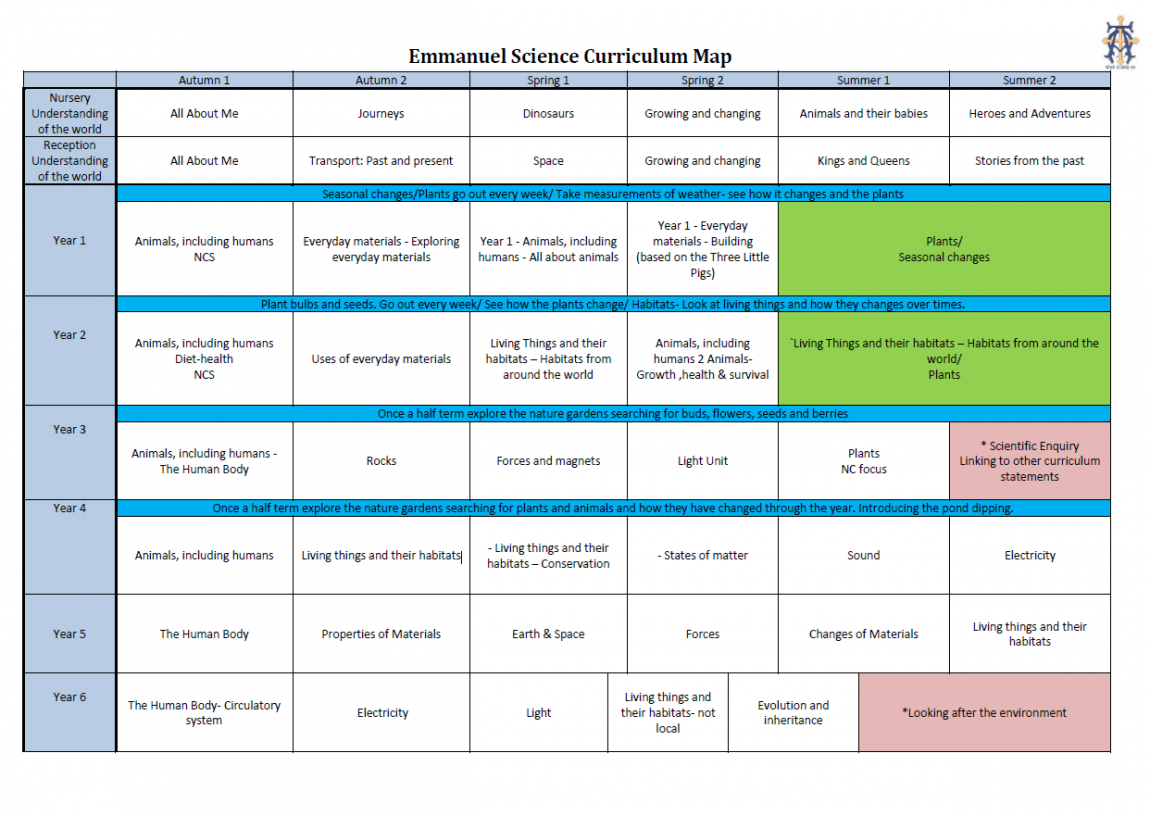Science
Science statement of intent:
At Emmanuel, Science is a key component of our broad and balanced curriculum as we aspire for all children to experience ‘life in all its fullness’. We intend for our Science curriculum to:
- Fulfil the aims of the National Curriculum for Science.
- Develop a love of learning by encouraging children to be enquiry-based learners who can pose their own scientific questions and investigate answers about the world around them.
- Develop resilience by engaging children in practical scientific experiments so they have opportunities to question, observe, discover, conclude and evaluate.
Introduction to Science
Science is a highly-regarded subject here at Emmanuel and our teaching aims to build strong foundations in the scientific disciplines of Biology, Chemistry and Physics. We do this through carefully sequenced lessons that build upon knowledge term-by-term and year-by-year.
The ‘Developing Experts’ science scheme of work provides a systematic approach to Science teaching and learning from EYFS to Year 6. Science is taught with a focus on 5 different lines of enquiry:
- Observation over time
- Identifying and classifying
- Pattern seeking
- Research
- Comparative and fair testing
Science skills from EYFS to Year 6
The teaching of science starts in the Early Years, where it links to the Early Learning Goal of Understanding of the World. Here, the children begin to explore the natural world around them, making observations and drawing pictures of animals and plants. They will understand processes and changes in the natural world around them including the seasons and changing states of matter.
In KS1, children explore and make sense of the world around them; children identify what makes animals and humans, materials and their uses, plants and seasonal change. There is a clear progression pathway from Year 1 to Year 2 where children are encouraged to work scientifically, investigating, using simple scientific equipment, observing and recording results.
In lower KS2, having established the foundational scientific concepts, the range of topics and concepts studied is broadened to include rocks, human impact on living things – conservation and pollution, and eventually, states of matter, sound, and electricity.
By Years 5 and Year 6, children are confident and independent young scientists. Through their explorations, they raise questions, make simple hypotheses which they test and collect data for and then analyse. The breadth of study now includes the solar system, forces, light and evolution.
We enrich the children’s experience of Science through a number of trips to some of the most prestigious museums in the world here in London, which are carefully placed in the curriculum so children can be fully immersed in the world of science. We also work closely with the Francis Crick Institute, who provide fantastic opportunities to embrace Science in the ‘Education Outreach Programme’. This gives children the opportunity to experience practical science, enables children to have hands-on experiences and work alongside real-life scientists.
Curriculum and progression maps
Please find information below on what the children will be studying and how this progresses throughout the year groups:

